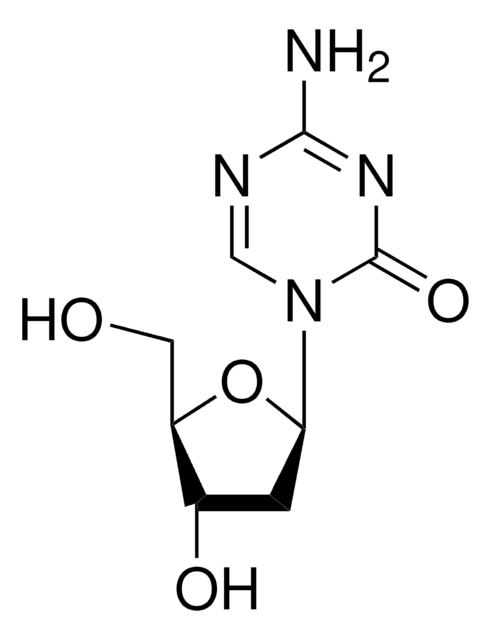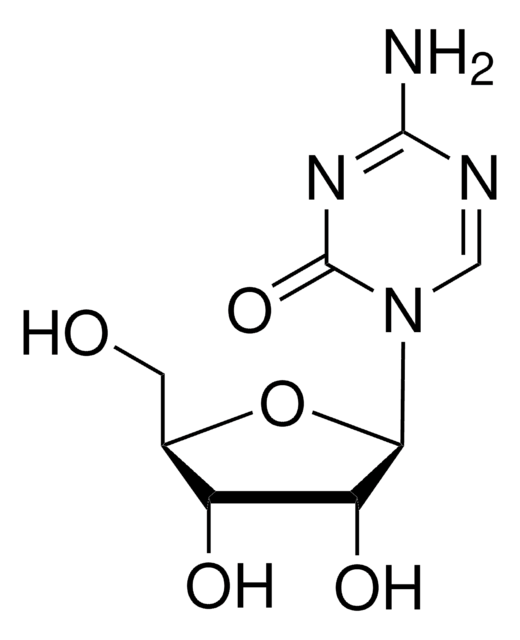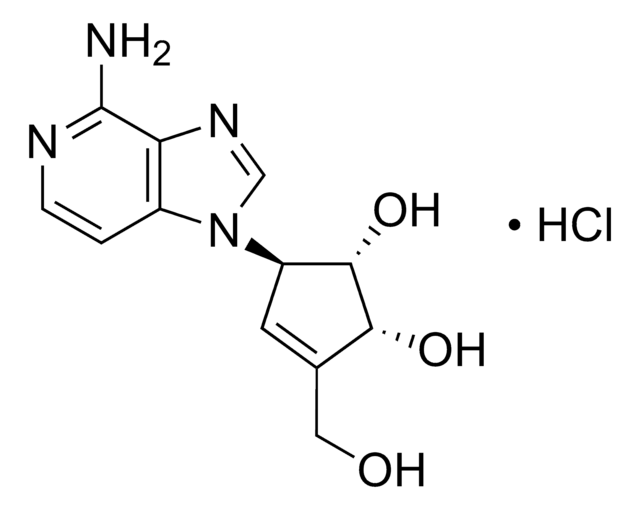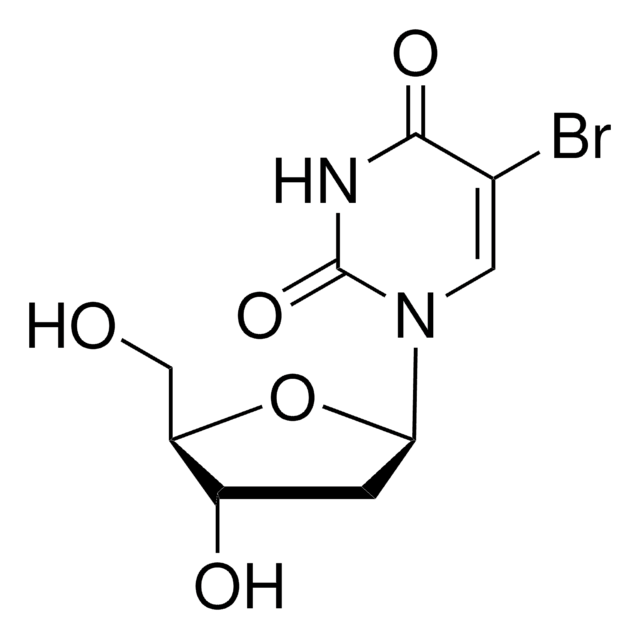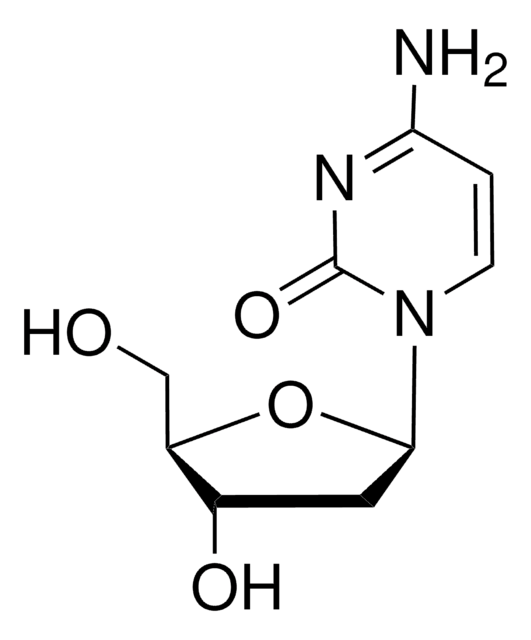推荐产品
品質等級
化驗
≥98% (HPLC)
形狀
lyophilized
製造商/商標名
Calbiochem®
儲存條件
OK to freeze
溶解度
methanol: 1 mg/mL
50% acetic acid: 25 mg/mL
DMSO: 25 mg/mL
運輸包裝
ambient
儲存溫度
2-8°C
InChI
1S/C8H12N4O4/c9-7-10-3-12(8(15)11-7)6-1-4(14)5(2-13)16-6/h3-6,13-14H,1-2H2,(H2,9,11,15)
InChI 密鑰
XAUDJQYHKZQPEU-UHFFFAOYSA-N
一般說明
一种作为DNA甲基转移酶抑制剂的胞嘧啶类似物。在TRAIL抗性细胞系中恢复caspase-8和caspase-10 mRNA和蛋白表达以及TRAIL(肿瘤坏死因子相关凋亡诱导配体)敏感性。也增强HDAC(组蛋白去乙酰化酶)抑制剂诱导的凋亡。也可以提供100 mM的DMSO溶液(目录号189826)。
一种作为DNA甲基转移酶抑制剂的胞嘧啶类似物。显示可恢复耐药细胞系对caspase-8的mRNA和蛋白表达以及肿瘤坏死因子相关凋亡诱导配体(TRAIL)的敏感性。还报道了增强由组蛋白脱乙酰基酶(HDAC)抑制剂诱导的凋亡。
生化/生理作用
主要靶标
DNA甲基转移酶抑制剂
DNA甲基转移酶抑制剂
包裝
用惰性气体包装
警告
毒性:有害 & 致癌/致畸性(E)
準備報告
需要加热才能完全溶解
重構
复溶后,等分并冷冻(-20°C)。 储备液在-20°C条件下可稳定保存3个月。
其他說明
Eggert, A., et al. 2001.Cancer Res.61, 1314.
Takebayashi, S., et al. 2001.Biochem.Biophys.Res. Commun.288, 921.
Zhu, W.G., et al. 2001.Cancer Res.61, 1327.
Hopkins-Donaldson, S., et al. 2000.Cancer Res.60, 4315.
Haaf, T. 1995.Pharmacol.Ther.65, 19.
Jones, P.A., and Taylor, S.M.1980.Cell20, 85.
Takebayashi, S., et al. 2001.Biochem.Biophys.Res. Commun.288, 921.
Zhu, W.G., et al. 2001.Cancer Res.61, 1327.
Hopkins-Donaldson, S., et al. 2000.Cancer Res.60, 4315.
Haaf, T. 1995.Pharmacol.Ther.65, 19.
Jones, P.A., and Taylor, S.M.1980.Cell20, 85.
法律資訊
CALBIOCHEM is a registered trademark of Merck KGaA, Darmstadt, Germany
訊號詞
Danger
危險分類
Acute Tox. 4 Oral - Eye Irrit. 2 - Muta. 2 - Repr. 1B - Skin Irrit. 2 - STOT SE 3
標靶器官
Respiratory system
儲存類別代碼
6.1C - Combustible acute toxic Cat.3 / toxic compounds or compounds which causing chronic effects
水污染物質分類(WGK)
WGK 3
其他客户在看
Carl M Gay et al.
Cancer cell, 39(3), 346-360 (2021-01-23)
Despite molecular and clinical heterogeneity, small cell lung cancer (SCLC) is treated as a single entity with predictably poor results. Using tumor expression data and non-negative matrix factorization, we identify four SCLC subtypes defined largely by differential expression of transcription
Adam W Watson et al.
Cell reports, 35(13), 109293-109293 (2021-07-01)
While the immediate and transitory response of breast cancer cells to pathological stiffness in their native microenvironment has been well explored, it remains unclear how stiffness-induced phenotypes are maintained over time after cancer cell dissemination in vivo. Here, we show that
Sara C Sebag et al.
Cell reports, 37(7), 110003-110003 (2021-11-18)
Brown adipose tissue (BAT) thermogenic activity is tightly regulated by cellular redox status, but the underlying molecular mechanisms are incompletely understood. Protein S-nitrosylation, the nitric-oxide-mediated cysteine thiol protein modification, plays important roles in cellular redox regulation. Here we show that
我们的科学家团队拥有各种研究领域经验,包括生命科学、材料科学、化学合成、色谱、分析及许多其他领域.
联系技术服务部门